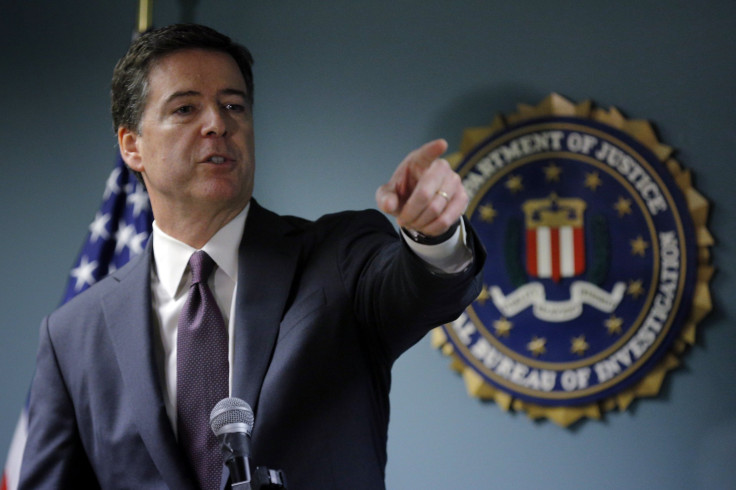FBI Director Speech Live Stream: What Can James Comey Say To Show He 'Gets It' About Blacks And Cops?

When FBI Director James Comey steps up to a lectern at Georgetown University Thursday to deliver a speech about “hard truths” in relations between racial minorities and police departments, he is expected to say much that the black and Latino communities have already heard. He’ll likely cite research that shows people raised in a society where whites are the majority race can unconsciously react differently in the presence of blacks, according to a New York Times report. He’s also expected to say that police officers, in communities where nonwhites commit a majority of crimes, can’t help but become prejudiced, although most are not racists. The speech is scheduled for 10 a.m. ET. To watch a live stream of the speech, click here.
There are a few things Comey could say to show that he "gets it." Blacks and Latinos have long been concerned about police officers' accountability for their conduct, an issue brought back to the fore by several killings in 2014, including those of Michael Brown in Ferguson, Missouri, and Eric Garner in Staten Island, New York. There were no indictments for the officers involved in the deaths of Brown and Garner, both of whom were unarmed when they were killed. Comey’s speech will be the first time an FBI director has waded into the issue of race at length, according to the New York Times report.
Comey could say that law enforcement agencies in the U.S. need to do a better job of tracking officer-involved fatal shootings. Last month, his boss, Attorney General Eric Holder, called for improved data reporting on the use of force by police, as well as on shootings of police officers. Holder called it “unacceptable” that the nation’s law enforcement agencies lack the ability to comprehensively track the numbers of incidents and the race of all parties involved.
Comey also could say that law enforcement agencies need to invest more in less reactive, preventative tactics of community policing. Complaints filed against police in minority communities often point to a perceived lack of respect between the two parties. That seemed clear in the accounts of Dorian Johnson, the friend of Brown who was with him when Officer Darren Wilson shot him last August. In multiple police and media interviews, Johnson said Wilson pulled up to the pair and told them to "get the f*** on the sidewalk." Wilson had not encountered Brown or Johnson before allegedly issuing the obscenity-laced order.
Other issues that have been raised by protesters and activists are the training and policies for the use of force, which Comey was expected to address in the speech. He has been in the job for about 18 months, according to a biography provided by Georgetown University. In 2003, Comey was sworn in as deputy attorney general at the U.S. Department of Justice, before leaving two years later to work as a lawyer in the private sector. He has also served as an assistant U.S. attorney for the Southern District of New York.
© Copyright IBTimes 2024. All rights reserved.






















